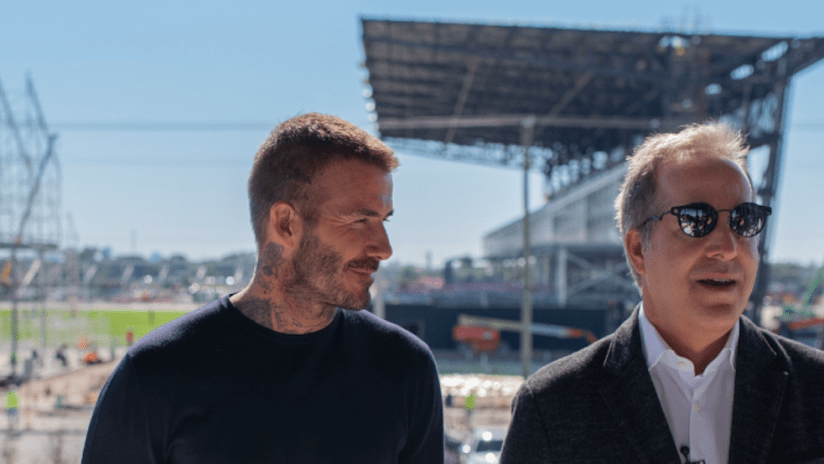What had long been reported became official on Thursday morning, as Inter Miami announced the departure of head coach Diego Alonso a year and a week after his hiring.
It’s another prominent figure in the ongoing list of departures from the fledgling club, who have pretty clearly decided that their inaugural season was disappointing enough to blow things up and start over.
Sporting director Paul McDonough is out, and will reportedly return to his former club Atlanta United. Miami's first chief business officer, Jurgen Mainka, left in early summer. Players who logged significant minutes in 2020 – or seemed like they should at the start of the year – like Juan Agudelo, Lee Nguyen, AJ DeLaGarza, Luis Robles, Wil Trapp, Andres Reyes and Ben Sweat have moved on, and others may yet follow suit.
From day one (from way before it, in fact) we’ve been told that this was not your average expansion project. That Miami had to go big in every way, that the Miami market demanded and deserved it, and that the ambition, wealth and connectedness of owners David Beckham, Marcelo Claure and the Mas brothers would make it possible. In that context, a sweeping clear-out after a rough debut is not entirely unexpected.
“This was a difficult year and a very tough decision for everyone, but we believe it is the right step for the club,” said Jorge Mas in the release announcing Alonso’s exit. “We have great expectations for Inter Miami in the short and long term.”
It’s only fair to point out here that probably no one in MLS suffered more from COVID-19’s disruptions than Miami.
This is still a brand-new organization that had little of the institutional knowledge that fellow expansionists Nashville SC got to build in the USL Championship before joining the top flight. Alonso was one of many important figures to arrive from overseas with limited up-close knowledge of the league. A rash of coronavirus cases on the eve of the playoffs was devastating. And there’s no real replacement for the energy generated by a year of spirited crowds getting to know their team and stadium across a full slate of home games.
All that hurt Miami a lot, both on and off the pitch, in ways that are hard to truly quantify. So maybe there’s no real downside to disassembling what little had been constructed up to this point.
Showpiece signings Gonzalo Higuain, Blaise Matuidi and Leandro Gonzalez Pirez didn’t arrive until well into the summer, a challenge for even the most illustrious imports to MLS. Rodolfo Pizarro, too, has struggled to live up to the game-breaking star he was with Monterrey. For all their talent, it wasn’t clear that they were being deployed to maximum effect within a coherent overarching tactical approach, and both performances and results generally reflected that.
Alonso chopped and changed a lot, perhaps more than someone who turned out to be on such a short leash should have. As successful as he was in his previous gigs, his brief time in south Florida was a muddle, bereft of overt identity or direction. And that's leaving a lot of potential on the table for an ambitious club in a soccer-mad, globally-known destination city.
In answering the question of what comes next, the big problem is that no one seems to have much of an idea about the plans, philosophies or lessons that are guiding their path forward.
What we do have are reports citing unnamed club sources that suggest Beckham will “take a more active role” in the day-to-day soccer operations – which would be a good and probably necessary thing given the departures mentioned above.
Maybe this is just a case of “show, don’t tell,” and we’ll get something more tangible in the coming weeks. If the British accounts of Phil Neville’s imminent arrival are accurate, perhaps the longtime Beckham teammate and former England international will hit the ground running with a comprehensive plan for renewal. His coaching track record with Valencia and the English women’s national team is a short and mixed one, as we’ll surely delve into in more detail should he be confirmed.
In the meantime, many of us on the outside are still in much the same place we were when Inter Miami was more of an idea than a reality: Daydreaming about what’s possible (which is quite a lot!), and waiting for it to show itself on the field.













